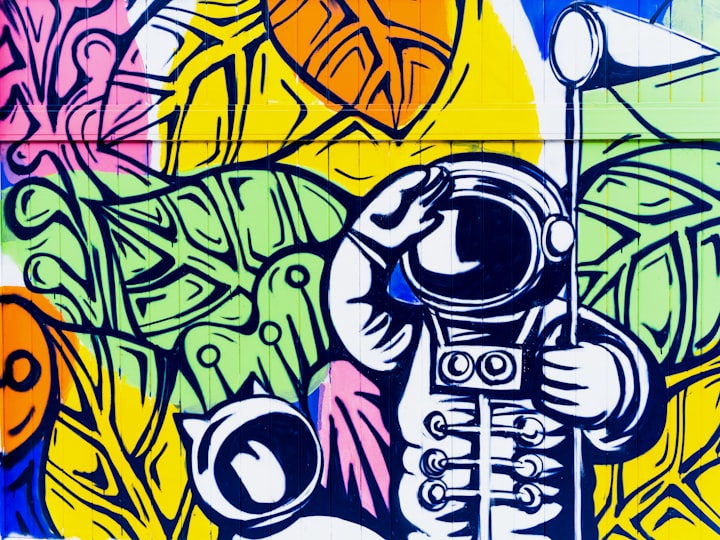How did history become the boring subject?
Human history is the most insane sequence of events and actions to ever take place, and yet in school and out it's considered dry. Why?

"David, why aren't you taking notes?" asked Ms. Thompson, pausing in the middle of a slide.
"I have a photographic memory," David replied, leaning back in his cheap blue plastic chair.
Ms. Thompson frowned. She was used to tomfoolery in her class, the eighty minute blocks meant kids got restless, but she had been at this for a while now and was good at catching the phones under desks and kids sneaking out the back. She wasn't sure about this one. David was a good kid, for the most part. Sure the diminutive Korean made bad puns every now and again, but he did great on tests and wasn't a hassle when it counted.
"Okay, prove it," she said, flipping to the next slide, "what was the first sentence on the last slide?"
"The HBC was reluctant to establish trading posts in the interior of Rupert's Land," said David, his face breaking out into an unabashed smile behind his glasses.
"Wow, okay," said Ms. Thompson, flipping back to the slide she had only gotten halfway through, "well I guess don't worry about the notes then."
It's too bad Ms. Thompson picked that particular sentence from that particular slide. Generally she made quick edits and reductions to the sentences she pulled from the textbook, but she hadn't done so for that one. She also hadn't noticed that David had his textbook open on his desk, like a good student.
She didn't catch him out on the lie for six months.
History has for many years been considered the most boring academic subject. It's been associated with the drab and the dry, with dusty old libraries and chubby English professors that speak in reedy voices. "Those who do not study history are doomed to repeat it," we all mumble wisely, nodding our fat little heads to the same beat, and pointing to the Holocaust since we're pretty sure that's the part of history the idiom was talking about. "Nothing to worry about," we say to ourselves, "because I have never been personally interested in committing genocide, so we should be in the clear." And in the same breath the fascinating human complexities of our recent and not-so-recent ancestors die whimpering as we look onwards into the future with the self-righteous justification of the damned. History has been joked about, groaned about, and solidified in the cultural psyche as the subject you have to be an old dude in a dusty library to care about. Why? We all seem aware that human history is probably the craziest, bloodiest, off the wall bonanza story to have ever been told. So why are its classes considered boring? Why is history presented as a set of facts when it's really a story with all of us as the characters?
It was grade 10 social studies and we were doing a very long section on Canadian history. It should have been called Ancient Canadian history, but Canada as a country wasn't included in the Western pantheon of world powers until World War I, so none of its history can really be considered ancient. Nonetheless, the semester focused pretty much entirely on the clash between the Hudson's Bay Company and the North West Company for control of the fur trade. Now, I only partially blame Ms. Thompson for that class' contribution to the perception that history is boring, after all she did nothing more or less than paraphrase our preassigned textbook during class, which is why David had no issue with the tests despite not paying attention to the lectures. The other part of the blame falls on the curriculum that decided of all the stories in all of human history, a corporate war over rodent furs needed so much time. They didn't even properly include any of the colour that makes that part of Canadian history interesting, the brutal manipulation of indigenous tribes, the stupid/courageous individuals trying to find new routes across the continent, the sheer difficulty of surviving in the vast Canadian wilderness using pre-modern technology. All of that is fascinating, just not in the way they presented it.
What's strange is that across multiple polls varying in location and therefore curriculum, history ranks consistently middle-of-the-pack in terms of being students' favourite subject. It tends not to be the favourite, but also not the least favourite. What's also curious is the fact that when the general subject of "social studies" is included in the same poll, it almost always ranks lower in popularity than history, even though they seem to be closely related. I don't have an explanation for this, but I suspect that there's a significant number of kids that do find the storied paths of their ancestors to be fascinating, but get it mixed up with the past's overly-lyrical poetry or the frustrating complexities of international bureaucracies. Because the U.N. was created in the past, which makes it a part of history, and William Butler Yeats wrote in the past which makes him a part of history. But if/when you learned about those, did you learn about them as facts or as stories?
My whole family was sitting on the couch one night when my dad discovered the Zapruder film was on YouTube. We had been talking about the JFK assassination in some aspect and my dad had pulled up the most famous home video in human history. The footage is understandably grainy, and much shorter than I thought it would be. Even more than that though, almost nothing happens in it. I mean, other than one of the most popular presidents in history's head exploding. I did not understand how this film had caused the virtual storm of conspiracy theories that I knew existed around the assassination. I said as much to my dad.
He ran the video back. "See this guy right here," he said, pointing to someone standing in the bottom of the frame, "why does he have an umbrella open when it's clearly sunny out?"
"I don't know, why?" I bit.
My dad smiled. "I don't know. It had been raining earlier in the day, maybe he just didn't bother to put it down."
That answer made me frown.
My dad ran the video back for a second time, this time pausing just at the moment of the bullet's impact with the president's head. "The Warren Commission claimed Oswald fired from behind the car," said my dad.
"Okay, so?"
"Why is his head snapping backwards if he was hit in the back of the head?" my dad said, one eyebrow delicately raised.
I didn't know. My mom got tetchy about seeing a man die three times, which is more than fair, so we moved on to watching something on TV. But that night started a casual curiosity about the assassination that I didn't have previously. I didn't know at the time that JFK had been wearing a sturdy back brace which could possibly have caused his head to rebound, I didn't know about the grassy knoll, I didn't know about the mysterious circumstances that occurred regarding Jack Ruby following his assassination of JFK's assassin, I didn't know JFK's death meant that Lyndon B. Johnson would be president and allow him to breeze into a second term during one of the most turbulent points in U.S. history, I didn't know about the numerous questionable choices the CIA had made during Kennedy's term, I didn't know about the Bay of Pigs crisis, I didn't know about Joe Kennedy and his role in both WW2 and getting his son the presidency, I didn't even know that Kennedy was rumored to have diddled Marilyn Monroe. I didn't know any of that because I thought history was boring, so I never bothered to ask.
The assassination of JFK is the perfect example of an interesting piece of history for a couple of reasons. First and foremost, it created a huge amount of change in the most influential country in the world at the time, which in turn altered much of what came afterwards. But for my purposes the second reason is more important: we don't know the facts. When I learned about Canadian history it was presented as a series of events that happened, that we know happened, and those facts arranged like dominoes to land us in our present. When I learned about the JFK assassination it was a narrative of intrigue and mystery that revolved around charismatic people and the huge implications of their actions; everyone had a backstory and each version of the story had its own villain and hero, complete with justifications for each. I don't know if I can truly say that my interest in history originated with the JFK assassination, but I'm confident that it was the first time I saw history for what it was, a total goddamned shitshow.
There are many a theory about what the driving force behind the shitshow of history is, but that doesn't change the fact that human past is a nightmare whirlwind of chaos that is rocketing us through the dark void of time. The fact that we are presented with it as a series of logical events that had predictable outcomes is a travesty. History is considered boring because we treat it like a piece of art or science, something of intent and purpose that holds great weight and must be respected. History is a reality TV show that allows sex and gore. Does studying history allow you to better identify sociopolitical trends that may give us an advantage in rational decision making in the future? Maybe. But it's also really funny to learn about the idiots from the past doing idiot things.
This whole time I've been referring to history as something you study. And you can study history. But history doesn't exist solely in the pages of books anymore, it exists in movies and TV shows and podcasts and youtube videos and blog posts and conversation. Don't study history. Put your bathing suit on and grab your goggles and slide down into the mud-pit of our past. Will you learn something? Probably. Will it be a wild ride? Absolutely.
Because history is not boring.
About the Creator
Rory Hoffman
Rory is a freelance writer and editor from Vancouver, Canada. He graduated with a degree in Political Science and Creative Writing from the University of British Columbia. Adores the fantasy genre and any story that gives that vibe.






Comments
There are no comments for this story
Be the first to respond and start the conversation.